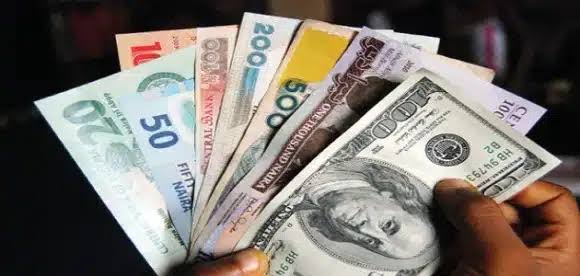The Nigerian currency is at its lowest ebb ever. It has never experienced the kind of depreciation it is currently undergoing since it became the official currency on January 1, 1973.
With the current exchange rate of the Naira against the United States Dollar, which stands at $1/N1,517.204 according to the CBN rate, the national minimum wage for grade level 01, set at N30,000, translates to less than $20. This is significantly lower when compared to the national minimum wage in the US, which is $7.25 per hour.
For a director at the Federal Civil Service, their basic monthly salary of N454,344 is approximately equivalent to $300 plus the inflation has eroded the purchasing buyer of Naira.
For instance, a bag of rice is selling between N70,000 – N80,000 while a crate of egg is now sold for N3,600, depending on the size of the eggs and location. That implies the minimum wage in Nigeria cannot buy a half bag of rice.
So, are you still receiving your old salary, or has your state governor not yet implemented the new minimum wage?
Even if you’re receiving N30,000 as a monthly wage, here is your salary equivalent in US dollars based on CBN exchange rate:
- N30,000: $19.8
- N40,000: $26.4
- N50,000: $33
- N70,000: $46.1
- N100,000: $66
- N120,000: $79.1
- N150,000: $98.9
- N200,000: $131.8
- N300,000: $197.7
- N400,000: $263.6
- N500,000: $329.5
- N1,000,000: $659.1
- N2,000,000: $1,318.2
- N5,000,000: $3,295.5
Note: Those earning in the range of N1 million to N5 million are typically found in the private sector.
Don’t forget that the parallel market rate is still competing with the official market rate.
Where is the Naira headed?
At the Nigerian Autonomous Foreign Exchange Market (NAFEM) on February 14, 1 USD exchanged for N1,503. However, currently, at the parallel market, it is trading at $1/N1,575, just a few minutes before publication.
With the National Minimum wage set at N30,000 a month, it may be rendered nearly worthless compared to the USD.
The Nigerian currency is still adjusting to market forces for its true value, according to some analysts, following President Bola Tinubu’s decision to float it and unify the exchange market.
Prices of goods and services have doubled or even tripled in some instances between May 29, 2023, and the present.
The country relies heavily on imports, while local production remains expensive due to increased production costs.


